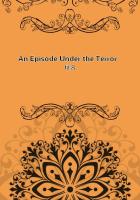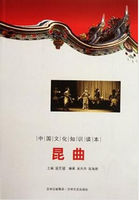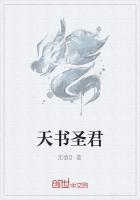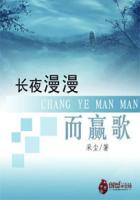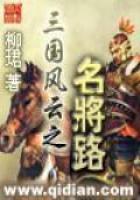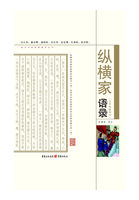Another circumstance which I should not omit is a duel which took place at Burgos, in 1808, between General Franceschi, aide-de-camp to King Joseph, and Colonel Filangieri, colonel of his guard, both of whom were equerries of his Majesty. The subject of the quarrel was almost the same as that between M. de Mariolles and de Sainte-Croix; since both disputed for the position of first equerry to King Joseph, both maintaining that it had been promised them.
We had hardly been in the palace of Burgos five minutes when the Emperor was informed of this duel, which had taken place almost under the walls of the palace itself, and only a few hours before. The Emperor learned at the same time that General Franceschi had been killed, and on account of the difference in their rank, in order not to compromise military etiquette, they had fought in their uniforms of equerry. The Emperor was struck with the fact that the first news he received was bad news; and with his ideas of fatality, this really excited a great influence over him. He gave orders to have Colonel Filangieri found and brought to him, and he came in a few moments. I did not see him, as I was in another apartment; but the Emperor spoke to him in so loud and sharp a tone that I heard distinctly all he said. "Duels! duels! always duels!" cried the Emperor. "I will not allow it. I will punish it! You know how I
abhor them!"--"Sire, have me tried if you will, but hear me."--"What can you have to say to me, you crater of Vesuvius? I have already pardoned your affair with Saint Simon; I will not do the like again. Moreover, I
cannot, at the very beginning of the campaign, when all should be thoroughly united! It produces a most unfortunate effect!" Here the Emperor kept silence a moment; then he resumed, although in a somewhat sharper tone: "Yes! you have a head of Vesuvius. See what a fine condition of affairs I arrive and find blood in my palace!" After another pause, and in a somewhat calmer tone: "See what you have done!
Joseph needs good officers; and here you have deprived him of two by a single blow,--Franceschi, whom you have killed, and yourself, who can no longer remain in his service." Here the Emperor was silent for some moments, and then added: "Now retire, leave! Give yourself up as a prisoner at the citadel of Turin. There await my orders, or rather place yourself in Murat's hands; he will know what to do with you; he also has Vesuvius in his head, and he will give you a warm welcome. Now take yourself off at once."
Colonel Filangieri needed no urging, I think, to hasten the execution of the Emperor's orders. I do not know the conclusion of thus adventure;
but I do know that the affair affected his Majesty deeply, for that evening when I was undressing him he repeated several times, "Duels!
What a disgraceful thing! It is the kind of courage cannibals have!"
If, moreover; the Emperor's anger was softened on this occasion, it was on account of his affection for young Filangieri; at first on account of his father, whom the Emperor highly esteemed, and also, because the young man having been educated at his expense, at the French Prytanee, he regarded him as one of his children by adoption, especially since he knew that M. Filangieri, godson of the queen of Naples, had refused a regiment, which the latter had offered him while he was still only a simple lieutenant in the Consular Guard, and further, because he had not consented to become a Neapolitan again until a French prince had been called to the throne of Naples.
What remains to be said on the subject of duels under the Empire, and the Emperor's conduct regarding them which came to my knowledge, somewhat resembles the little piece which is played on the theater after a tragedy. I will now relate how it happened that the Emperor himself played the role of peacemaker between two sub-officers who were enamored of the same beauty.
When the French army occupied Vienna, some time after the battle of Austerlitz, two sub-officers belonging to the forty-sixth and fiftieth regiments of the line, having had a dispute, determined to fight a duel, and chose for the place of combat a spot situated at the extremity of a plain which adjoined the palace of Schoenbrunn, the Emperor's place of residence. Our two champions had already unsheathed and exchanged blows with their short swords, which happily each had warded off, when the Emperor happened to pass near them, accompanied by several generals.
Their stupefaction at the sight of the Emperor may be imagined. Their arms fell, so to speak; from their hands.
The Emperor inquired the cause of their quarrel, and learned that a woman who granted her favors to both was the real motive, each of them desiring to have no rival.
These two champions found by chance that they were known to one of the generals who accompanied his Majesty, and informed him that they were two brave soldiers of Marengo and Austerlitz, belonging to such and such regiments, whose names had already been put on the list for the Cross of Honor; whereupon the Emperor addressed them after this style: "My children, woman is capricious, as fortune is also; and since you are soldiers of Marengo and Austerlitz, you need to give no new proofs of your courage. Return to your corps, and be friends henceforth, like good knights." These two soldiers lost all desire to fight, and soon perceived that their august peacemaker had not forgotten them, as they promptly received the Cross of the Legion of Honor.
In the beginning of the campaign of Tilsit, the Emperor, being at Berlin, one day took a fancy to make an excursion on foot to the quarter where our soldiers in the public houses indulged in the pleasures of the dance.






